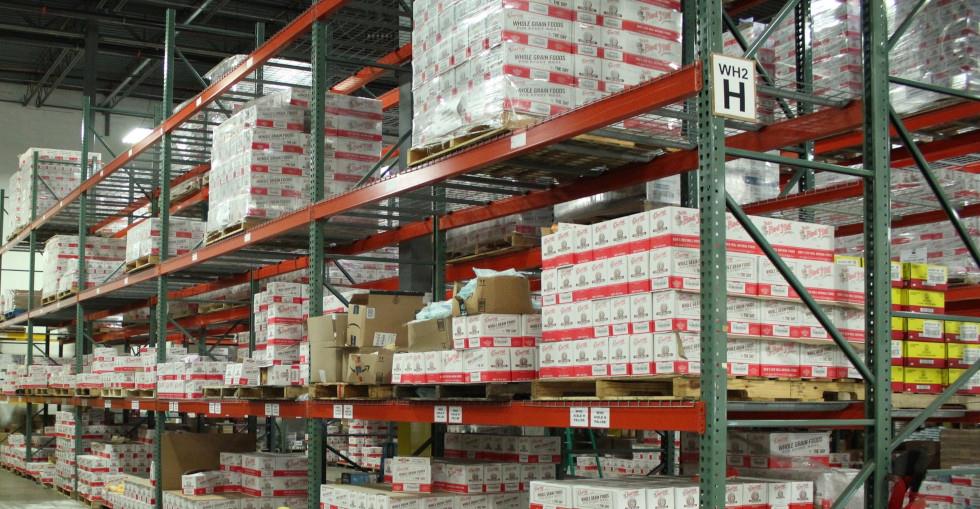Wholesale distributors make products accessible to end consumers by bridging the gap between manufacturers and retailers. Whether you specialise in basic materials, groceries, liquor, tobacco or machinery, this industry is highly competitive, so it is essential that you stand out from competing channels.
Regardless of the goods you distribute, wholesale and distribution businesses are important components of the Australian economy.
Let's start off by offering advice on how to improve your business.
Three ways to improve your business
Before we dive deeper into how to run your wholesaling businesss, there are three things you can implement to improve your business:
- Carve out a niche: Choosing a niche for your business will help you forge long-term relationships with manufacturers and suppliers. It will also position your business as an expert within the industry. The four major industry segments are food and beverage, healthcare, high-tech, and industrial. However, there are many smaller niches such as clothing, paper products, and footwear.
- Negotiate contracts with manufacturers and suppliers: The prices you get determine your profit margins and how much you have to charge your customers. By learning how to negotiate better prices, you give yourself more of a chance to succeed.
- Offer additional services to your customers: Wholesale distributors are now offering additional services to stay competitive in their niches. For example, you could provide installation, maintenance, or other services related to your product.
You can position your business as an authority, increase your profits, and compete against other wholesalers by implementing these strategies.
Now, let's dive into the best ways to run your wholesale distribution business effectively.
Consistent market analysis
Industries are constantly changing, so you need to keep tabs on your competitors and industry trends to ensure success.
When doing competitor research, you should ask yourself questions like:
- What are they doing well?
- Is there anything that I can learn from them?
- Are there things that customers don’t like about them?
- What products or services can I offer to differentiate my business?
- Have they changed anything about their business recently? Why?
Besides direct competitors, it’s also a good idea to analyze wholesalers in different industries as you can pick up some valuable information.
To keep on top of industry trends, you can set up Google Alerts for specific keywords, follow industry groups and publications and chat to manufacturers and suppliers.
Alternatively, you can find free and paid industry reports like NuORDER’s The Future Of Wholesale Industry Report.
Make sure you are effectively managing your inventory
Managing inventory correctly is crucial for wholesale distributors as mistakes can interrupt other business operations.
Inventory management can be time-consuming since you have to analyze many factors, including product availability, consumer demand, expiration dates, and more. And with all these factors, it’s easy to make mistakes.
That’s why it’s a good idea to invest in inventory management software that will automate this analysis. Software like Shipfusion can give you real-time updates on stock levels, suggest ways to improve your stock and freight management.
Reset your business goals
Goal setting gives you a roadmap to follow and determines whether your actions have been successful. However, you’ll need to consider your specific situation because your niche, location, and experience will determine a reasonable goal.
Here’s a goal-setting example using the well-known SMART framework:
- Specific: I want to add five new profitable product streams within the next year by researching 50 products.
- Measurable: Five new profitable products by testing 50 products.
- Achievable: There are 240 working days in one year. If I take 50 working days to research products and 20 working days talking to manufacturers, I have 170 days to test suitable products.
- Relevant: This goal is appropriate because I want to grow my business.
- Time-bound: There is a time constraint as I aim to do this within one year.
By setting SMART goals for your wholesaling business, you always know what you have to do next to achieve them.
Improve your marketing
Marketing is crucial for finding new customers, and the digital space is where most of this happens. Since you’ll be targeting other businesses, your marketing will need to showcase your authority and expertise in the products you sell.
You can do this by:
- Sharing valuable content: Create blog posts and case studies around products you wish to promote. These can focus on the benefits of selling your products or how retailers can benefit from working with you.
- Attending industry events: Industry events in your niche attract retailers, consumers, and manufacturers. You can set up a booth and make an effort to chat with as many people as you can.
- Building an email list: Email gives you a direct line to your customers where you can share sales, new products, and industry news.
While there are tonnes of marketing strategies out there, it’s essential to focus on the few that make a difference for your business. However, the only way you’ll know this is by testing them one-by-one.
Grow your team
Running your wholesale distribution business alone is definitely possible if you make use of third-party warehousing solutions. These companies often take care of receiving, managing, storing, and even shipping products to customers. However, these services do come at a cost.
Once you outgrow third-party warehousing, these are the staff you may want to hire as you grow your team:
- Accountant: Once your finances become too challenging to manage, you’ll need to hire an accountant. Accountants will take care of compliance, record management, general finances, taxes, and more. You’ll typically need to pay between $65k - $80k per year for a full-time accountant.
- Warehouse worker: If you have your own warehouse, employing laborers for it is essential. Warehouse workers are needed for handling your products and preparing them for dispatch. You’ll typically need to pay between $45k - $55k per year for a full-time warehouse worker.
- Office administrator: Your administrator will take care of client communications, paperwork, and other ad-hoc duties. You’ll typically need to pay between $50k - $60k per year for an office administrator.
- Marketer: Marketing is crucial for maintaining a steady flow of business and promoting new products and services. You’ll typically need to pay between $60k - $80k per year for a marketer.
- Warehouse manager: Once your warehouse grows large enough, you’ll need a dedicated warehouse manager. Warehouse managers plan operations and direct warehouse workers and other staff. You’ll typically need to pay between $60k - $100k per year for a warehouse manager.
When hiring employees, it’s best to start with where you need the most help. For example, if you’re moving into your own warehouse, you’ll likely need a warehouse worker first. That way, you can focus on marketing, admin, and customer service as these jobs are of higher value for your business.
Including staff benefits
Staff benefits help to retain employees and make working at your company more attractive. However, some benefits are non-negotiable.
These are:
- Superannuation (pension): The current legislated minimum is 10%, with maximum employer contributions of $5,432 per quarter. However, this is subject to change so check with the Australian Tax Office.
- Paid time off: All part-time and full-time employees need to receive 20 paid holidays each year.
- Long service leave: Employees receive an additional 8.67 weeks of leave for ten years of service.
Besides these mandatory benefits, businesses in Australia offer a range of benefits like:
- Maternity and paternity leave
- Sick leave
- Insurance
- Paid education
- Company cars
- Health stipends
- Workplace gyms
Whichever extra benefits you decide to offer your employees, ensure that they’re competitive with those in your industry.
Exiting your business
There are many strategies you can use to sell your business. For example, selling the company to family, outside investors, or even the general public through an IPO.
But, regardless of which option you choose, it’s essential to:
- Schedule an approximate exit date
- Understand how to value your business so you can maximize your return
- Regularly evaluate and edit your exit plan as business conditions can change
- Learn how to negotiate a business sale so no one can take advantage of you
- Know what you want to achieve with your exit

